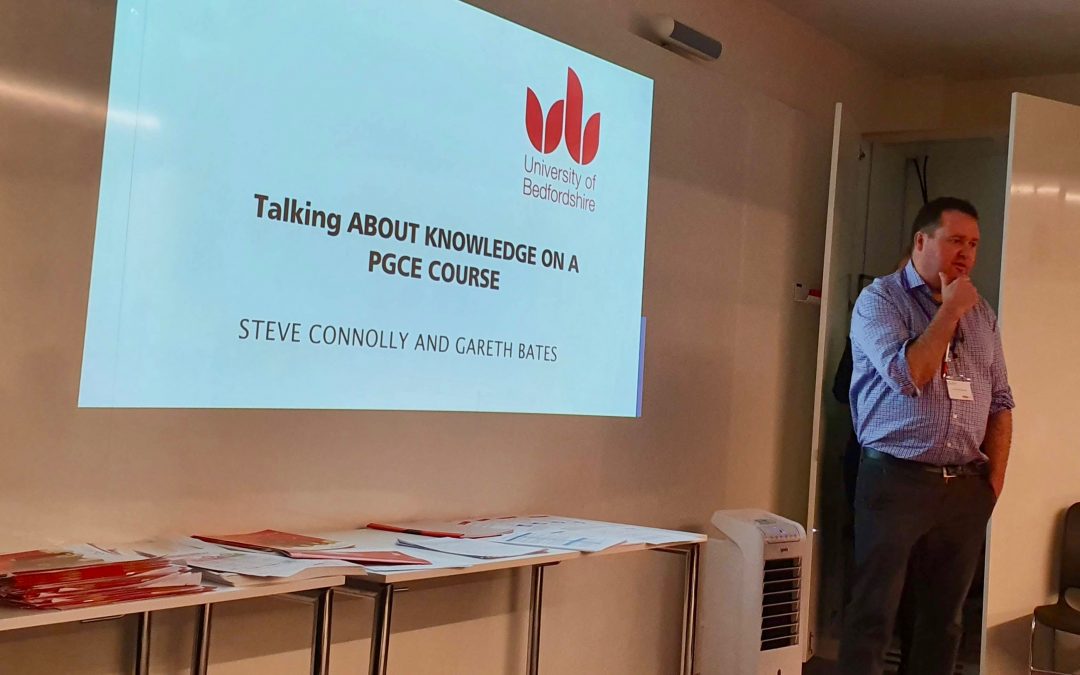Guest post by our consortium members – Steve Connolly & Gareth Bates, University of Bedfordshire
About a year or so ago, before we became fully involved in the Epistemic Insight project, we had been thinking about the way that we, as PGCE tutors, might get our trainees to move from the position of being scientists, or at least science graduates, to science teachers a bit more easily during their course of initial teacher education.
For us, this move was marked by the ability to demonstrate some particular virtues, which we identified as epistemic humility (an acknowledgement that sometimes, science did not hold all the answers), epistemic curiosity (seeking to acquire and use new knowledge) and self-regulation (the ability to recognise that you have the right kind of scientific knowledge for that which you are teaching) .
We published this article in Research in Teacher Education, in which we noted these observations, and when we were invited to take part in the EI project, a good deal of what we had been thinking seemed to match up to its goals. The ability to ask the “Big Questions” which make links between science and other subjects, seems to be essential for trainees to teach their pupils about the nature of scientific inquiry, as does the curiosity and humility to accept that sometimes this inquiry will need to accede to other kinds of investigation in order to make knowledge complete.
Looking back, a year after we wrote the article, it seems that our current situation – a life lived in the shadow of a global pandemic – re-emphasises the need to think about the kind of science teachers that we want and need.
People’s thirst for scientific knowledge is perhaps more unquenchable than ever; but, it is also the need to connect that scientific knowledge to other fields of human endeavour (History, Economics, Politics, Religion, Philosophy and Psychology and many more) that demonstrates that our science teachers need to be able to make connections with the different types of knowledge that are useful and valuable to the communities in which we live. These “intellectual virtues” lie at the heart of this need and the EI project provides a means by which they might be foregrounded.
About the authors:
Dr Gareth Bates is a Lecturer in Teacher Education at University of Bedfordshire. He enjoys adopting a creative and innovative approach to teaching using scientific misconceptions as a focal point of his sessions. Gareth has a PhD in chemistry from University of Southampton. Prior to his current position, Gareth was a secondary science teacher with Head of Faculty responsibilities.
Dr Steve Connolly is a Lecturer in Education at the University of Bedfordshire. Prior to this position, he spent 18 years as a teacher, Head of Department and Senior Leader in secondary schools in London, teaching a range of subjects. Steve has a PhD in Media Education from Institute of Education in London and is interested in both Media Education and the application of technology in the classroom.
If you are a consortium member and would like to contribute to our blog please get in touch with us at lasar@canterbury.ac.uk
If you are interested in contributing to our epistemic insight initiative as a consortium member contact dr Aga Gordon at lasar@canterbury.ac.uk

